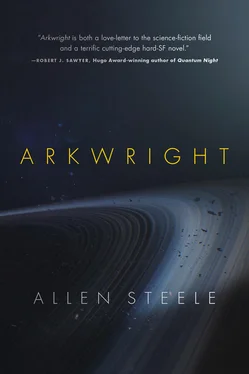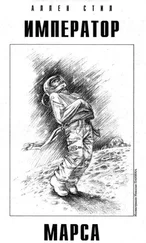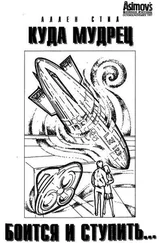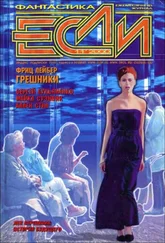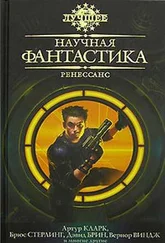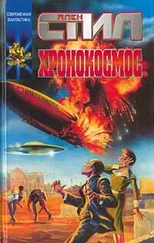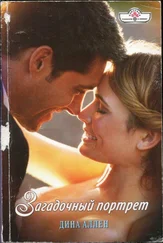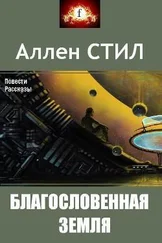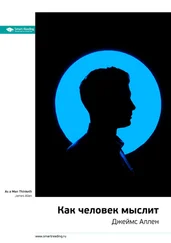He gave her an expectant look, as if hoping that she’d recognize his byline. “I’m sorry, Mr. Skinner—”
“Harry.”
“But I haven’t read much science fiction except my grandfather’s.”
A sad smile, accompanied by an even sadder sigh. “Story of my life,” Harry said quietly. “Thirty-nine books, and I’ll probably be forgotten ten minutes after I’m dead.”
“I always said you should have picked a better pseudonym.” Maggie walked over to one of the armchairs and lowered herself into it. “Something more memorable than the shade of paint you put on your house.”
“George Hallahan.” George carried his drink to the couch. “Not a writer … or at least not science fiction.”
Kate nodded, and then something tickled the back of her mind. She remembered a piece she’d written a couple of years earlier when she’d covered a conference at MIT regarding interstellar exploration; several speakers had made reference to the work of a former Manhattan Project scientist, a physicist from the Institute of Advanced Study by name of …
“Dr. George Hallahan.” She stared at him. A legend in the theoretical physics community. “You knew Grandpapa.”
“An old and dear friend. He’d call from time to time when he needed help with something.” Seeing the astonished look on her face, George grinned. “No, you won’t find my name in any of the acknowledgments. The security agreements I’d signed when I was doing military research at General Atomics would have meant getting a visit from the FBI if they’d learned I was telling a science fiction writer how nuclear rocket engines worked. Besides, it didn’t hurt Nat’s reputation to let his readers believe that he dreamed up that techy stuff all by himself.”
“Not to mention his plots,” Harry muttered.
“Hush. Not true, and you know it.” Maggie turned to Kate. “It doesn’t sound like it, but Harry and Nat were best friends, practically brothers. What you’re hearing is the sound of sibling rivalry.”
Kate discreetly glanced at her watch. It was almost one o’clock. If she stayed much longer, she’d hit the weekend traffic on the pike going back to Boston. “Well, it’s been a pleasure to meet all of you, but—”
Maggie held up a hand. “This is important, and I promise we won’t take much more of your time. It concerns your grandfather’s will.”
“Oh?”
An apologetic smile. “I wish I could tell you otherwise, but it’s not what you think, if you’re thinking what I expect you’d be. Nat’s lawyer let me take a look at it, so I’ll spare you the anxiety of waiting to hear from him. Your grandfather left nothing to his family. Not you, not your mother, and not any of the relatives hanging around outside.” A dry laugh. “Mr. Sterling found a case of The Galaxy Patrol in the basement. Signed Gnome Press first editions, just a little brown around the edges. Quite valuable. He’ll be giving them to everyone here, just so no one goes home empty-handed.”
“Bet half of them wind up on eBay,” Harry said.
“Disappointed?” George seemed to be studying Kate’s reaction.
She shrugged. “Not really. I barely knew Grandpapa, and he and Mom didn’t get along at all. I really shouldn’t expect that he’d leave us”—she waved a hand around the office—“all this.”
“No.” Maggie crossed her legs. “The house is being put on the market. The furniture will be auctioned. His books are being purchased by an antiquarian book dealer in New York, and we’re negotiating with science fiction art collectors in Chicago and Alabama for his paintings. His savings will be liquidated, as well, once the estate’s debts are settled. Fortunately, there are not many. Nat was nothing if not frugal.” She smiled. “Even his papers are going somewhere else … the Eaton Collection at the University of California–Riverside. No cash for that, I’m afraid, but the estate will be getting a nice tax write-off.”
“I see. And who’s getting the money?”
“The Arkwright Foundation.”
“The what?”
“Nat stated in his will that a nonprofit foundation is to be established in his name to underwrite various worthy projects. As executor of his literary estate, it will be my responsibility to make sure that all future income from his books—royalties, reprint sales, residuals from his media properties, and so forth—will be funneled directly into the foundation, where it will be invested into various enterprises that will increase the income over time.”
“Uh-huh. I see.” Kate set down the champagne and folded her arms together. “And what’s to prevent the Arkwright Foundation from becoming your own money market account?”
Maggie’s lips pursed, and her eyes became glacial. George cleared his throat. “You have a right to be suspicious,” he said, quietly diplomatic, “but I assure you, on both my word of honor and the memory of our friend, that nothing of the sort will happen. In fact, that’s the reason we’ve asked you here. We’d like to ask you to join us on the foundation’s board of directors.”
“Me? But I—”
“Barely knew him,” Harry said, finishing her thought for her. “Yeah, we know. Believe me, Nat regretted this more than you’ll ever know.”
“I’m going to have to believe you, because he sure didn’t let me know.”
“Your mother stood in the way,” George continued. “Their enmity is something we can’t undo, but we can step around her by asking you to be the family’s representative in the Arkwright Foundation.”
“I see,” Kate said, although she really didn’t. To buy herself a moment, she picked up her drink. The champagne had lost its sparkle, but it wet a throat that had gone dry. “You still haven’t told me what the foundation is all about. What’s its purpose? Establish a wild bird sanctuary? Save whales? Provide free science fiction books to underprivileged kids?”
None of the three said anything for a few seconds. Harry and George looked at Maggie, silently deferring to her.
“We could tell you,” Maggie said at last, “but it’s a long story and one you might not believe if you heard it here and now. Perhaps it’s better if you found out yourself.”
Standing up from her chair, Maggie walked over to the desk. Opening a drawer, she pulled out a white cardboard box. “This is the last thing your grandfather wrote,” she said, carrying it across the room. “An autobiography he’d been working on over the last several months or so. He didn’t finish it … and frankly, I’m glad he didn’t. I asked him not to write the damned thing, but he wouldn’t listen.”
Kate took the box from her and opened it. Inside lay a short sheaf of typewritten paper, probably no more than sixty or seventy pages in all. The cover sheet read My Life in the Future, with her grandfather’s byline below it. “Why didn’t you want him to write it?”
Maggie hesitated. “There are things about him that shouldn’t be published.”
“She’s right,” Harry said. “Your grandfather had secrets that shouldn’t have been revealed while he was still alive … while a lot of people are still alive.” George nodded in agreement.
“It’s an incomplete manuscript, though, so no doubt you’ll have questions.” Maggie returned to her seat. Groaning softly, she bent down to pick up her handbag from where she’d left it on the side table. “You’ll probably want to call us,” she went on, opening it to fish out a silver card holder. “Here’s my card. Harry and George will give you theirs too.”
“I don’t have one,” Harry said, “but my number’s in the Philly phone book.” Catching a look from Maggie, he shrugged. “So I’m cheap. Sue me.”
“I can be reached at the institute,” George said. “I’ll tell my secretary to put you through if you call.”
Читать дальше
